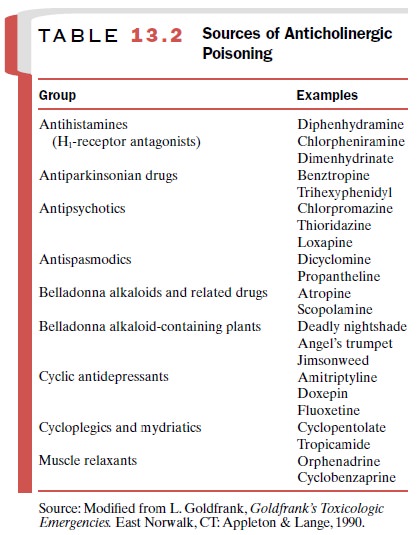Chapter: Modern Pharmacology with Clinical Applications: Muscarinic Blocking Drugs
Muscarinic Blocking Drugs: Antimuscarinic Poisoning
ANTIMUSCARINIC
POISONING
Antimuscarinic poisoning can
result from the intake of excessive doses of belladonna alkaloids, synthetic
an-timuscarinic drugs, and drugs from other pharmacolog-ical groups that have
significant antimuscarinic activity (Table 13.2).

Signs of peripheral
muscarinic blockade (e.g., speech disturbances, swallowing difficulties,
cardioac-celeration, and pupillary dilation) are most common at lower doses,
whereas CNS effects (e.g., headache, rest-lessness, ataxia, and hallucinations)
are more apparent after large doses. Antimuscarinic drugs can produce atrial
arrhythmias, A-V dissociation, and ventricular tachycardia and fibrillation.
Many cases of antimus-carinic poisoning can be managed by removing unab- sorbed
drug, treating symptoms, and providing support-ive therapy. However, any
life-threatening effects (i.e., seizures, severe hypertension, hallucinations,
or life-threatening arrhythmias) would justify the use of spe-cific antidotal
therapy with the cholinesterase-inhibiting compound physostigmine. Special
caution should be employed if the patient has any disorder that might be
aggravated by the cholinergic stimulation resulting from the use of
physostigmine.
Related Topics